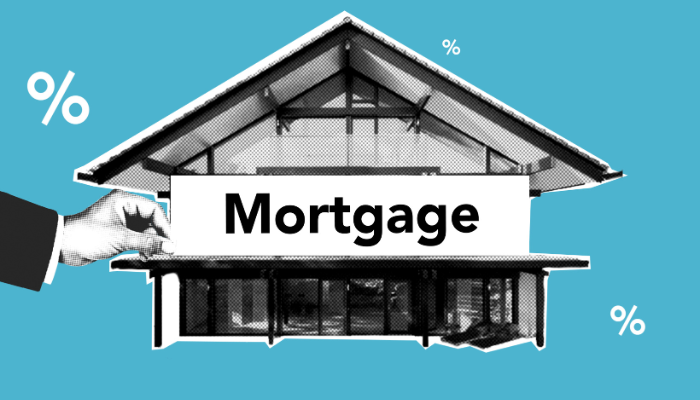
What is a mortgage?
A mortgage is a type of loan used to buy or maintain a home, land, or other types of real estate property. The borrower agrees to pay the lender over time, normally in a series of regular payments that are divided into principal and interest. The property then serves as collateral to secure the loan.
In this type of loan, the borrower must apply for a mortgage through their selected lender and ensure that they meet several requirements, including minimum credit scores and down payments. Mortgage applications go through a careful underwriting process before they reach the closing phase. Mortgage types, such as conventional or fixed-rate loans, vary based on the needs of the borrower.
- A co-signer can give your bank or lender the security it needs in your finances to approve your request.
- Consider waiting for the housing market to swing in your favor or for interest rates to drop before making an application.
- Credit reports and scores can make the difference in getting a mortgage approval.
- If you’re disapproved because you don’t meet the minimum requirements of income, consider looking for a less expensive home.
- You may be able to ask your lender for an exception, find another lender, or you could consider an FHA loan.
1. Get a Co-Signer
If your income isn’t high enough to qualify for the loan you’re applying for, a co-signer can be of help. A co-signer helps you because their income will be included in the affordability calculations. Even if the person isn’t sharing a home with you and only helping you make the monthly payments, the bank will consider a co-signer’s income. The main factor here is to ensure that your co-signer has a good employment history, stable income, and good credit history.
2. Wait for economic improvement
Sometimes conditions in the economy, the housing market, or the lending business make lenders stingy when approving loans. Regulators inspect banks to ensure they’re not taking on more risk than they can handle. If the economy doesn’t support a strong housing market where banks are actively lending, perhaps it’s best to wait until the market improves.
3. Work on Improving Your Credit Score
You can work on improving your credit score, reducing your debt, and increasing your savings. To work on your credit score, you should first obtain a copy of your credit report. Companies like Clear Score, Experian, and my credit check have helpful information about getting a free credit report on their websites. The report will list your credit history, open loans, credit card accounts, and track record for making timely payments. Once you have the report, you can obtain your credit score from one of the three credit agencies.
4. Set Your Sights on a Less-Expensive Property
If you can’t qualify for the mortgage amount you want and you aren’t willing to wait, you could choose a smaller home with fewer bedrooms, bathrooms, or square footage. A home in a more distant neighborhood may also provide you with more affordable options.
If necessary, you could even move to a different part of the country where the cost of homeownership is lower. When your financial situation improves over time, you might be able to trade up to your ideal property, neighborhood, or city.
5. Ask the Lender for an Exception
Believe it or not, asking the lender to send your file to someone else within the company for a second opinion on a rejected loan application is possible. In asking for an exception, you’ll need to have a very good reason, and you’ll need to write a carefully worded letter defending your case.
If you have a one-time event—such as a charged-off account—impacting your credit, explain why the incident was a one-time event and that it will never occur again. For example, a one-time event could be due to unexpected medical expenses, natural disasters, divorce, or a death in the family (the blemish on your record will need to have been a one-time event). Also, you’ll need to be able to back your story up with an otherwise solid credit history.
6. Consider Other Lenders and FHA Loans
Banks don’t all have the same credit requirements for a mortgage. For example, a large bank that doesn’t underwrite many mortgage loans will likely operate differently than a mortgage company that specializes in home loans. Local banks and community banks are also great options. The key is to ask many questions regarding their requirements; from there, you can assess which financial institution is right for you. Just remember, banks can’t discourage you from applying. (It’s illegal for them to do so.)
In other words, one lender may say no, while another may say yes. However, if every lender rejects you for the same reason, you’ll know it’s not the lender, and you’ll need to correct any issues holding you back.
Some banks have programs for low-to-moderate-income borrowers, which might be part of the FHA loan program. An FHA loan is a mortgage insured by the Federal Housing Administration (FHA), which means the FHA reduces banks’ risk of issuing mortgage loans. The advantage of FHA loans is that they require lower down payments and credit scores than most traditional mortgage loans.
